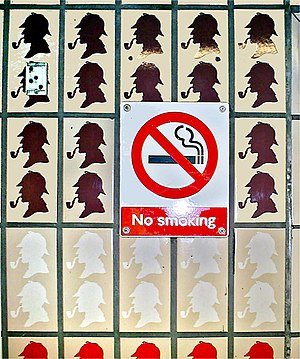More actions
No edit summary |
No edit summary |
||
| Line 56: | Line 56: | ||
== Importance of Irony == | == Importance of Irony == | ||
Irony is a powerful way to challenge perceptions, add depth to communication, and create memorable impressions. By highlighting contrasts between expectations and reality, it encourages critical thinking and emotional engagement. Whether in literature, art, or daily interactions, irony remains an enduring and impactful tool for expression. | Irony is a powerful way to challenge perceptions, add depth to communication, and create memorable impressions. By highlighting contrasts between expectations and reality, it encourages critical thinking and emotional engagement. Whether in literature, art, or daily interactions, irony remains an enduring and impactful tool for expression. | ||
[[Category:Literature]] | |||
Latest revision as of 20:53, 25 November 2024

Irony is a literary and rhetorical device where there is a discrepancy between what is expected and what actually occurs, or between what is said and what is meant. Often used to emphasize a point, create humor, or provoke thought, irony allows a writer or speaker to express deeper meaning by contrasting appearances with reality.
Types of Irony
There are several types of irony, each serving different purposes in literature, communication, and everyday life:
1. Verbal Irony
Verbal irony occurs when a speaker says something but means the opposite. It is often used to convey sarcasm or wit.
- Example: Saying "What a pleasant day" during a thunderstorm.
2. Situational Irony
Situational irony arises when there is a contrast between what is expected to happen and what actually happens. This type of irony is common in storytelling and life.
- Example: A fire station burns down.
3. Dramatic Irony
Dramatic irony occurs when the audience knows more about a situation than the characters involved, creating tension or humor.
- Example: In Romeo and Juliet, the audience knows Juliet is alive when Romeo believes she is dead.
4. Cosmic Irony
Also known as "irony of fate," this occurs when a situation is influenced by forces beyond human control, often highlighting the unpredictability of life.
- Example: A person survives a shipwreck only to drown in a shallow puddle.
5. Socratic Irony
Named after the philosopher Socrates, this involves pretending ignorance to expose another person’s ignorance or flaws in their argument.
- Example: A teacher feigning confusion to lead students to discover an answer on their own.
Uses of Irony
Irony is a versatile tool used across various domains:
1. Literature and Drama
Irony enriches narratives by adding layers of meaning and engaging the audience. It allows writers to critique society, explore complex themes, or create unexpected twists.
- Example: George Orwell’s Animal Farm employs situational irony to critique totalitarianism.
2. Comedy
Irony is a key element of humor, as it creates surprising or absurd contrasts that amuse audiences.
- Example: A comedian might use verbal irony by praising an obviously bad idea.
3. Social Commentary
Irony can highlight hypocrisy or absurdities in societal norms, often employed in satire and political discourse.
- Example: Jonathan Swift’s A Modest Proposal uses irony to criticize British policies toward the Irish.
Examples in Popular Culture
- Movies: In The Truman Show, the audience is aware that Truman’s life is a staged reality show, but Truman himself remains oblivious (dramatic irony).
- Literature: In O. Henry’s The Gift of the Magi, a couple sacrifices their most prized possessions to buy gifts for each other, only to render the gifts useless (situational irony).
- Everyday Speech: Someone stuck in traffic might say, "Well, this is just fantastic" (verbal irony).
Importance of Irony
Irony is a powerful way to challenge perceptions, add depth to communication, and create memorable impressions. By highlighting contrasts between expectations and reality, it encourages critical thinking and emotional engagement. Whether in literature, art, or daily interactions, irony remains an enduring and impactful tool for expression.